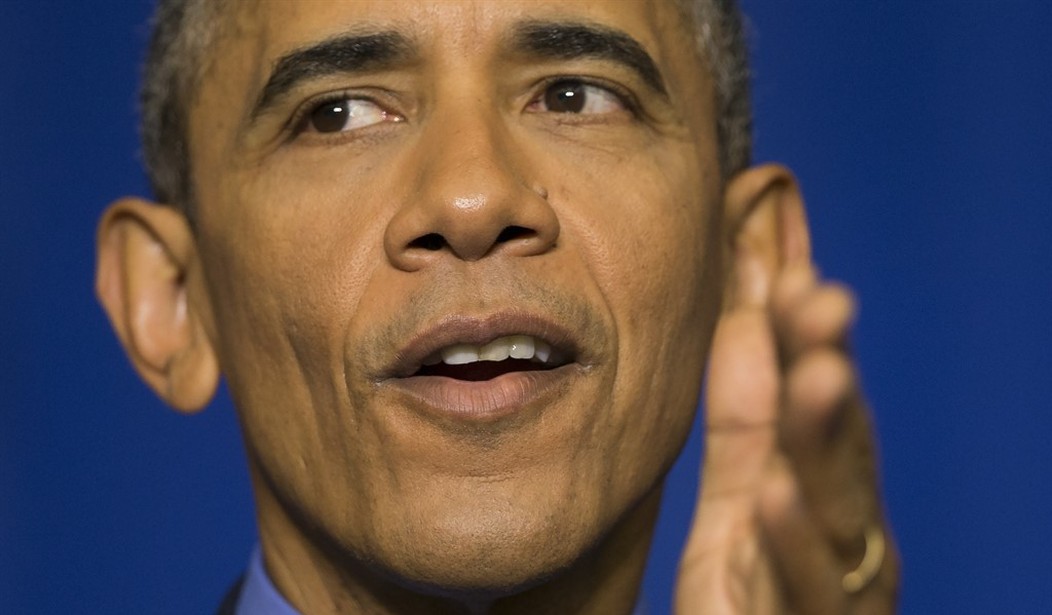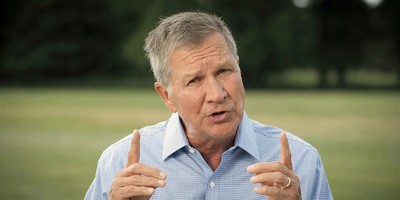Last night in a rare primetime address to the nation from the Oval Office, President Obama called on Congress to pass legislation stripping anyone, including American citizens, on the terrorism no-fly list of the ability to purchase a firearm in the United States. Sounds pretty reasonable right? Nobody wants terrorists to have easy access to guns and it certainly sounds bad when the argument is made that those currently on the terror watch list have the ability to do so. But here's the problem: The terror no-fly list is a mangled, bureaucratic mess of over 700,000 names. Yes, there are names on the list that are connected to terrorism, but nearly half of those names belong to people who have zero links to terrorist groups at all.
The way some in Congress have proposed closing it would create an even bigger threat to civil liberties.
It all hinges on how you define a “suspected” terrorist. For Sen. Dianne Feinstein, D-Calif., all it requires is for your name to be on a government list. She is sponsoring a bill that would prohibit anyone whose name appears on the FBI’s terror watch list from buying a firearm or an explosive while traveling in the United States.
That list, which contained 47,000 names at the end of George W. Bush’s presidency, has grown to nearly 700,000 people on President Obama’s watch. The fact that they are names, not identities, has led to misidentifications and confusion, ensnaring many innocent people. But surely those names are there for good reason, right?
Not really. According to the technology website TechDirt.com, 40 percent of those on the FBI’s watch list — 280,000 people — are considered to have no affiliation with recognized terrorist groups. All it takes is for the government to declare is has “reasonable suspicion” that someone could be a terrorist. There is no hard evidence required, and the standard is notoriously vague and elastic.
So who ends up on the list who shouldn't and why? Take for example Weekly Standard Senior Writer and Fox News Contributor Steve Hayes, who was put on the no-fly list after a cruise.
Recommended
Stephen Hayes, a senior writer at The Weekly Standard and a regular Fox News contributor, was informed Tuesday that he had been placed on the Department of Homeland Security's Terrorist Watchlist.
Hayes, who spoke to POLITICO by phone on Tuesday, suspects that the decision stems from U.S. concerns over Syria. Hayes and his wife recently booked a one-way trip to Istanbul for a cruise, and returned to the U.S., a few weeks later, via Athens.
"I'd be concerned if it was anything more than that," Hayes said.
Hayes first learned about his status on the watchlist during a trip to Minneapolis a few weeks ago when he was stopped for extra screening.
"When I went online to check in with Southwest, they wouldn't let me. I figured it was some glitch," he explained. "Then I got to the airport and went to check in. The woman had a concerned look on her face. She brought over her supervisor and a few other people. Then they shut down the lane I was in, took me to the side, told me I was a selectee and scrawled [something] on my ticket."
"On my way back. the same thing happened," he continued. "I got pulled out, they closed down the lane, and did a full pat-down and looked in all parts of my luggage."
Things got slightly awkward on that return flight, because one of the TSA employees was a frequent Fox News viewer. "He knew I wasn't an actual terrorist," Hayes explained, "but it didn't matter."
Hayes finally contacted Southwest on Tuesday, ahead of another flight, to ask why he couldn't check in. A customer service supervisor told him he wasn't going to be able to get a boarding pass before arriving at the airport.
But travel to certain regions isn't the only way you can get put on the list without due process. The Huffington Post (a liberal outlet), ran a piece in 2014 titled, "7 Ways That You (Yes, You) Could End Up On A Terrorist Watch List,” detailing the process of how the feds submit "suspicious" names.
The Intercept published a 166-page document outlining the government's guidelines for placing people on an expansive network of terror watch lists, including the no-fly list. In their report, Jeremy Scahill and Ryan Devereaux highlighted the extremely vague and loosely defined criteria developed by 19 federal agencies, supposedly to fight terrorism.
Using these criteria, government officials have secretly characterized an unknown number of individuals as threats or potential threats to national security. In 2013 alone, 468,749 watch-list nominations were submitted to the National Counterterrorism Center. It rejected only 1 percent of the recommendations.
Critics say the system is bloated and imprecise, needlessly sweeping up thousands of people while simultaneously failing to catch legitimate threats, like Boston Marathon bomber Tamerlan Tsarnaev.
The terrorism watch list has been an inefficient, often times lazy way for the feds to harvest names and it has expanded rapidly under Obama with little results to show for it. What we really should be doing is profiling and asking a series of detailed questions to those traveling to the United States from terrorism hot spots around the world. Why were you in Syria? Why did you pass through Greece? What were your purposes in those countries? Who did you meet with? Did you receive any gifts? Who did you travel with? Why did you travel alone on the way there but are traveling with a partner on your way back? Etc.
Do we want terrorists buying guns legally at gun stores in America? No. Do we want the rights of Americans with zero connection to terrorist groups, who have been placed on the no fly list, to be stripped of their constitutional rights? Hell no.
If Congress or President Obama want to truly prevent actual terrorists from legally obtaining firearms, they're going to have to reform the way we classify and put people on the ever expanding no-fly "terrorism" watch list. in the meantime, the administration should accept that gun control for terrorists is a laughable concept. In France, where 130 people were slaughtered by ISIS three weeks ago, AK-47s (along with grenades and suicide vests) are completely banned from purchase.
The bottom line is this: Terrorists who want to do harm will find ways, even in countries with extreme gun control, to get the guns they want to carry out attacks. In America, innocent people want the ability to arm themselves against terrorists who plan to do so and the administration is trying to make it harder for them to engage this capability.
Homeland Security and the Obama administration should focus on terrorism control, not gun control.
























Join the conversation as a VIP Member